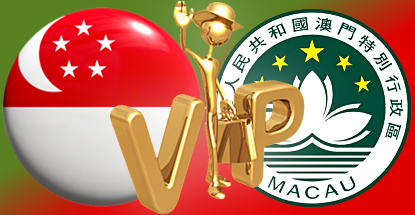Macau casinos’ VIP gaming market fell over 45% in March and junket operators say April isn’t looking any better.
Official numbers from Macau gaming regulators aren’t due for another couple weeks, but Deutsche Bank analysts believe the VIP market fell 45.4% year-on-year in March, well above the 39% decline in overall gaming revenue. VIP turnover was reportedly off an even more alarming 54.2%.
Mass market gaming revenue was believed to be down a modest 29.4% and slots were off 24.4% from March 2014. Sands China’s mass market decline was one point worse than the overall mass decline, while Wynn Macau boasted a mass decline of just 4.7%.
Macau earned MOP 21.5b (US $2.7b) in gaming revenue in March, but early projections are that April will come in lower. An informal polling of some casino junket operators by Macao Daily put April’s expected revenue total at no better than MOP 20b. One junket operator suggested the VIP market wouldn’t recover until (a) Beijing slowed the corruption crackdown train and (b) the mainland’s economy picked up.


















